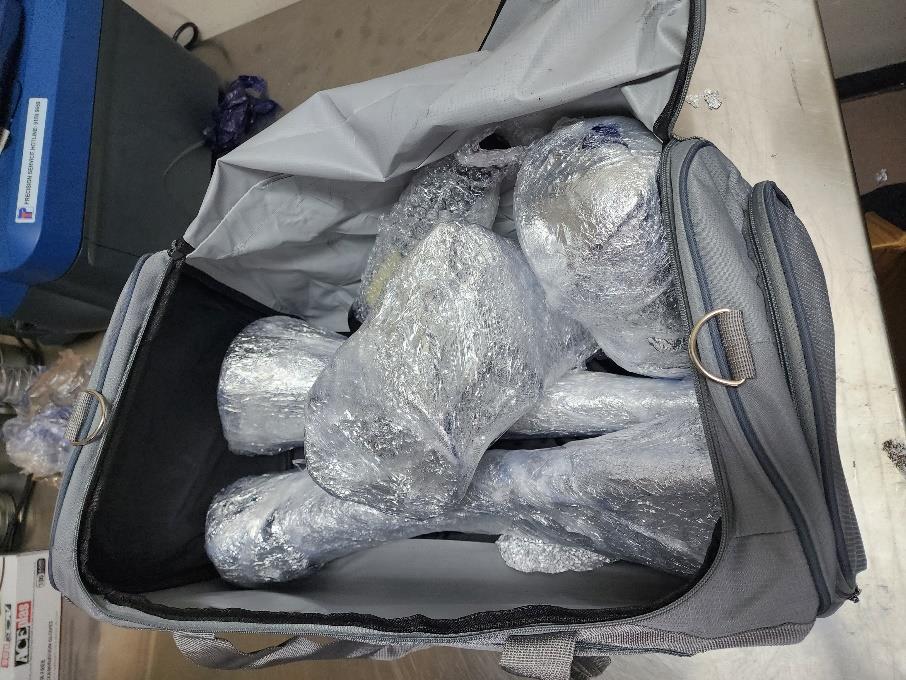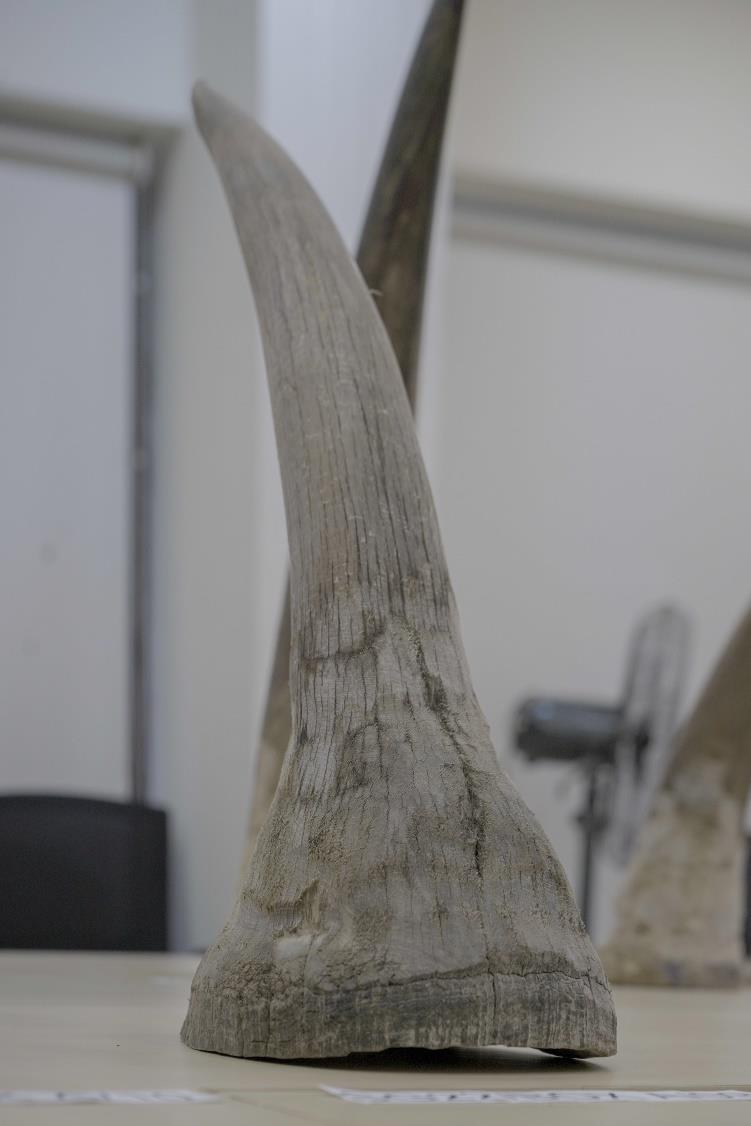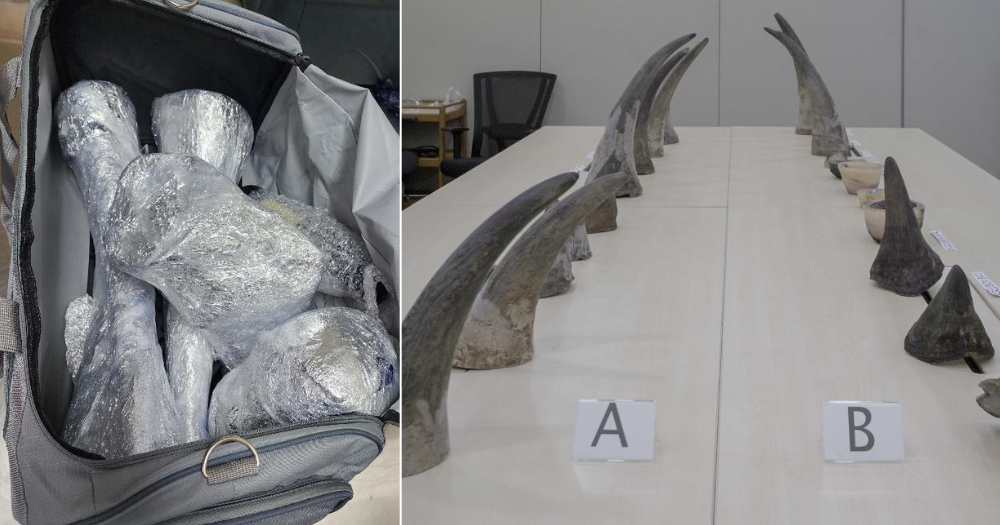Follow us on Telegram for the latest updates: https://t.me/mothershipsg
The National Parks Board (NParks) recently seized the largest ever haul of rhinoceros horns in Singapore to date.
On Oct. 4, airport security and NParks' K9 Unit detected and inspected two pieces of baggage going through Changi Airport.
20 pieces of rhinoceros horns were found, weighing 34kg and estimated to be worth around S$1,200,000.
 Photo from NParks
Photo from NParks
 Photo from NParks
Photo from NParks
The owner of the baggage was travelling from South Africa to the Lao People’s Democratic Republic through Singapore and was immediately arrested.
The rhinoceros horns were subsequently seized by NParks.
 Photo from NParks
Photo from NParks
 Photo from NParks
Photo from NParks
Rhinos are protected under CITES
All rhinoceros species are protected under the Convention on International Trade in Endangered Species of Wild Fauna and Flora (CITES).
International trade in rhinoceros horns is prohibited.
There are currently five rhinoceros species left in the wild, three of which are critically endangered.
NParks wrote in a news release that Singapore is a signatory to CITES and is committed to international efforts to curb illegal wildlife trade to ensure the long-term survival of these animals.
Genetic testing is currently being conducted at NParks’ Centre for Wildlife Forensics to identify the rhinoceros species.
The horns will then be destroyed to prevent them from re-entering the illegal wildlife trade market.
For the possession of CITES-scheduled species in transit in Singapore without a valid CITES permit, the person smuggling the horns can be fined up to S$50,000 per scheduled species (not exceeding an aggregate of S$500,000), and/or jailed for up to two years.
Under the Endangered Species (Import and Export) Act, the same penalties apply to the possession of or transhipment of the parts and derivatives of CITES-scheduled species, such as their horns.
Multi-pronged approach
NParks assured that Singapore adopts a zero-tolerance stance on the illegal trade of endangered species, as well as their parts and derivatives.
Agencies collaborate closely and work with international partners to regulate and enforce against such trade.
Members of the public can play their part by making sure their purchases of consumer products do not contain the parts of endangered species.
Members of the public can contact NParks at [email protected] if they spot any occurrences of illegal wildlife trade.
Information shared will be kept strictly confidential.
Top photo from NParks
If you like what you read, follow us on Facebook, Instagram, Twitter and Telegram to get the latest updates.
